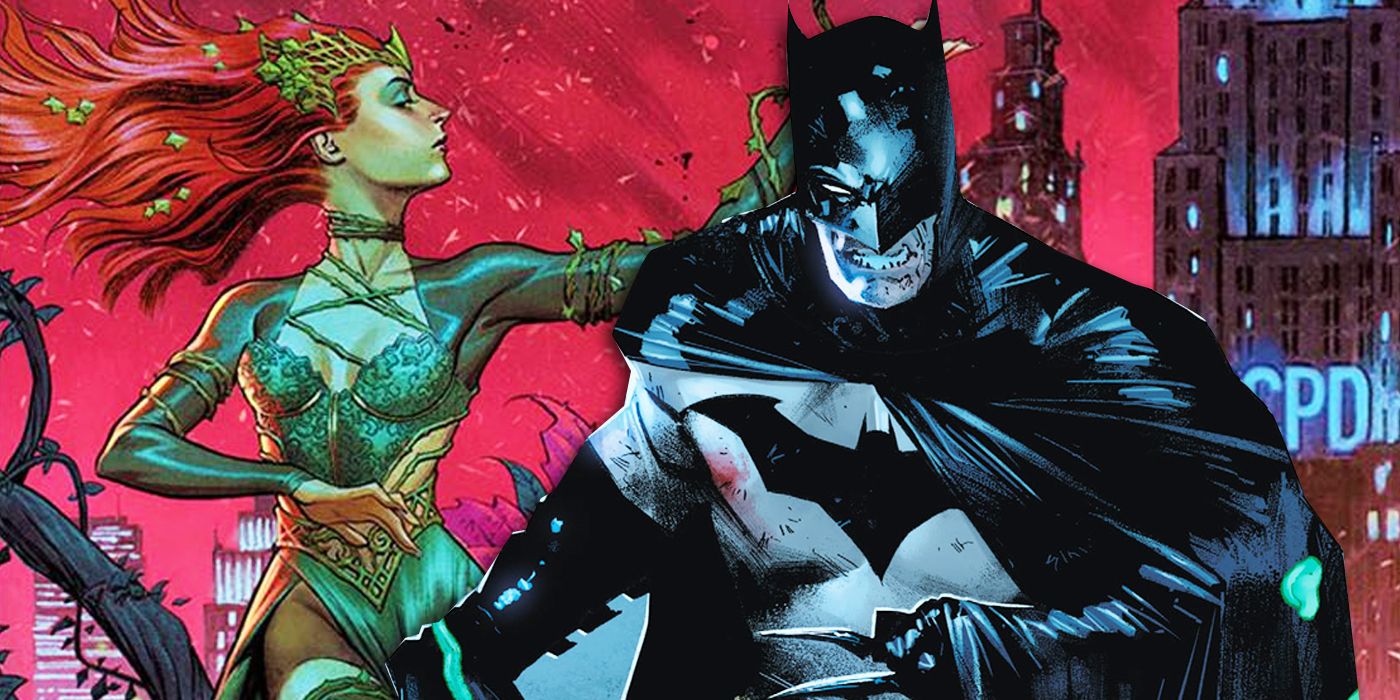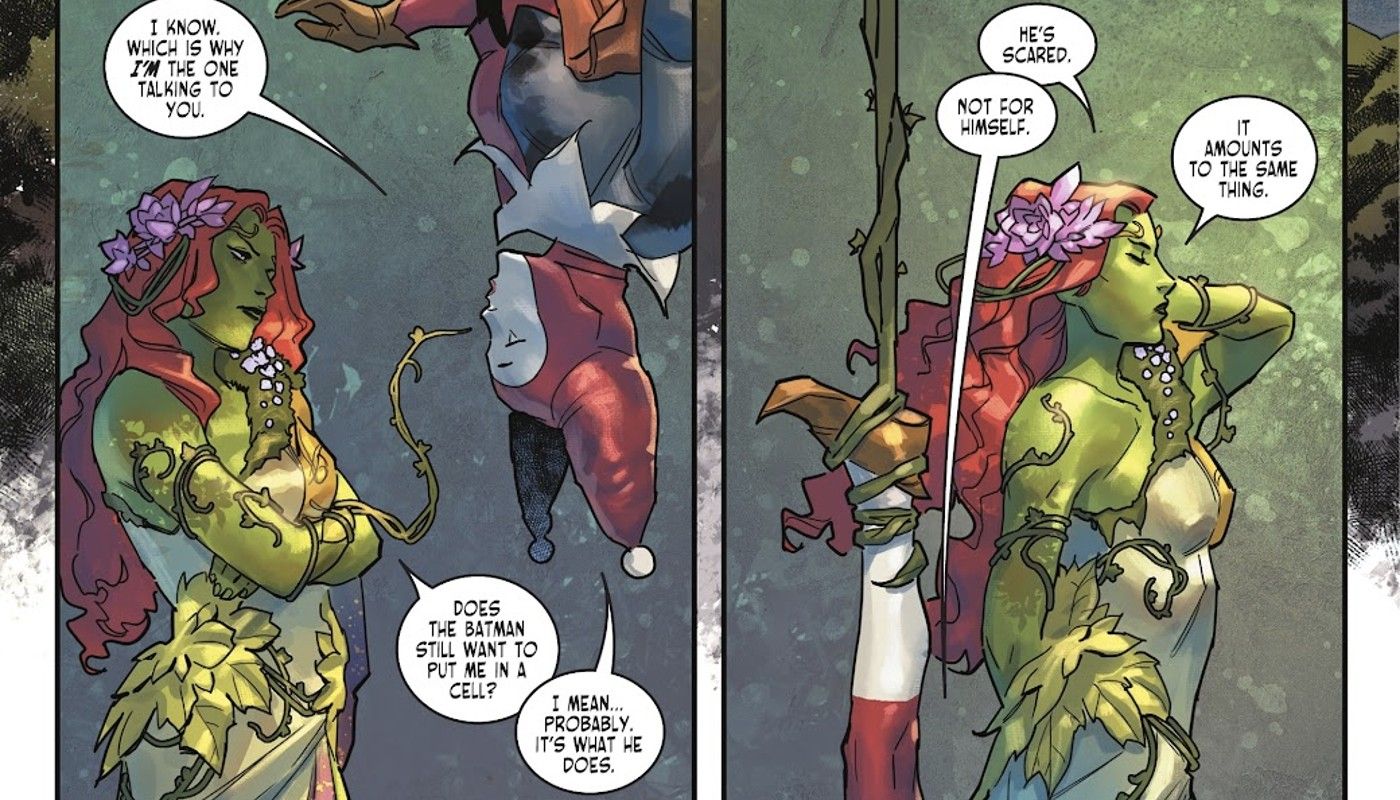Warning! This article contains spoilers for Dark Knights of Steel #5
Arguably, it could be said that Batman is one of the most deeply complex characters not just in DC Comics but in comics as a whole. But in Tom Taylor's and Yasmine Putri's Dark Knights of Steel, Poison Ivy broke down Batman's character to its core in a single line of dialogue.
Dark Knights of Steel is a reimagining of the DC universe in a medieval high fantasy setting. Instead of coming to Earth by himself, Superman arrives with his parents and sets up the House of El. Batman is a knight tasked with protecting the House of El. He goes after threats such as the Banshee, who is this world’s Black Canary, and Poison Ivy after the King was murdered from her forest.
Dark Knights of Steel #5, begins with Harley Quinn entering the forest in search of Poison Ivy. She is immediately captured and tries to plead for safety by saying she was sent by the queen. Poison Ivy questions her as to whether or not the Batman is still looking for her. Harley avoids the topic and Poison Ivy declares that Batman is scared. Harley Quinn then notes that he's not scared for himself. Poison Ivy replies to this by saying, "It amounts to the same thing."
It's weird that in the standard DC universe Poison Ivy is a botanist while Harley Quinn is the psychologist, yet Poison Ivy is the one here to have this profound analytical takedown and analysis of Batman's character. And it holds true! Batman might be considered a hero because he cares for others, but that care is derived from fear and pessimism, which ultimately leads Batman to make some serious blunders.
A great example of this is the blockbuster crossover War Games. Batman had taken on Spoiler as his new Robin after Tim Drake quit. He trained Spoiler rigorously but ultimately felt she wasn't quite ready for duty as Robin. This fear for her and overbearing protection led Spoiler to try to prove herself in other ways. This led to the War Games crisis that tore Gotham apart and resulted in Spoiler's death (which was later retconned). This is why Ivy's point is so profound. As a hero, Batman could proclaim himself selfless all he wants, but if the fallout is the same then it doesn't necessarily matter. Batman is just a paranoid scared man that puts up walls, and Poison Ivy knows it doesn't matter if those walls or for himself or for others.


